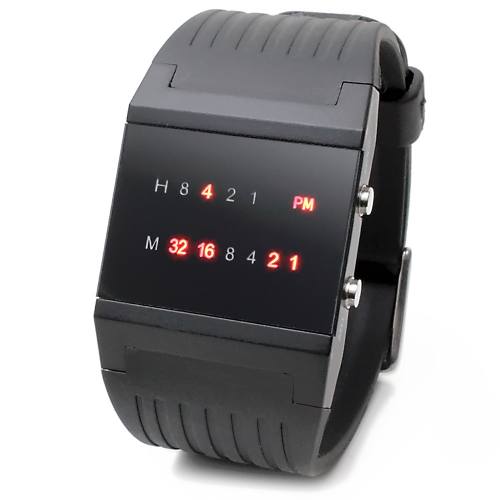A binary watch has 4 LEDs on the top to represent the hours (0-11), and 6 LEDs on the bottom to represent the minutes (0-59). Each LED represents a zero or one, with the least significant bit on the right.
- For example, the below binary watch reads
"4:51".
Given an integer turnedOn which represents the number of LEDs that are currently on (ignoring the PM), return all possible times the watch could represent. You may return the answer in any order.
The hour must not contain a leading zero.
- For example,
"01:00"is not valid. It should be"1:00".
The minute must be consist of two digits and may contain a leading zero.
- For example,
"10:2"is not valid. It should be"10:02".
Example 1:
Input: turnedOn = 1
Output: ["0:01","0:02","0:04","0:08","0:16","0:32","1:00","2:00","4:00","8:00"]
Example 2:
Input: turnedOn = 9
Output: []
Constraints:
0 <= turnedOn <= 10
- Simplify by seeking for solutions that involve comparing bit counts.
- Consider calculating all possible times for comparison purposes.
impl Solution {
pub fn read_binary_watch(turned_on: i32) -> Vec<String> {
let mut res = Vec::new();
// 12 hours, 60 minutes
// here we use 0_i32 to avoid the warning of type inference
for i in 0_i32..12 {
for j in 0_i32..60 {
// if the sum of the number of 1s in the binary representation
// of the hour and minute is equal to turned_on,
// then the time is added to the res
if i.count_ones() + j.count_ones() == turned_on as u32 {
res.push(format!("{}:{:02}", i, j));
}
}
}
res
}
}


